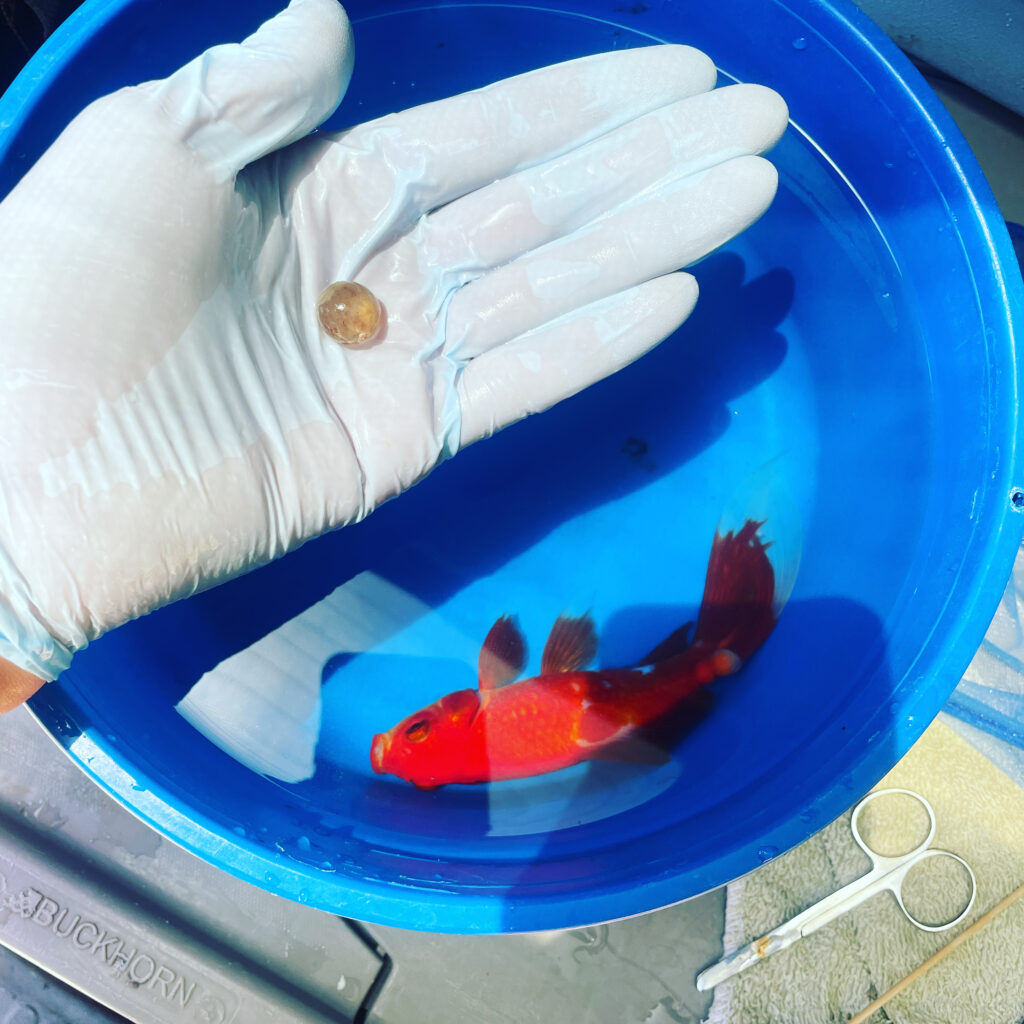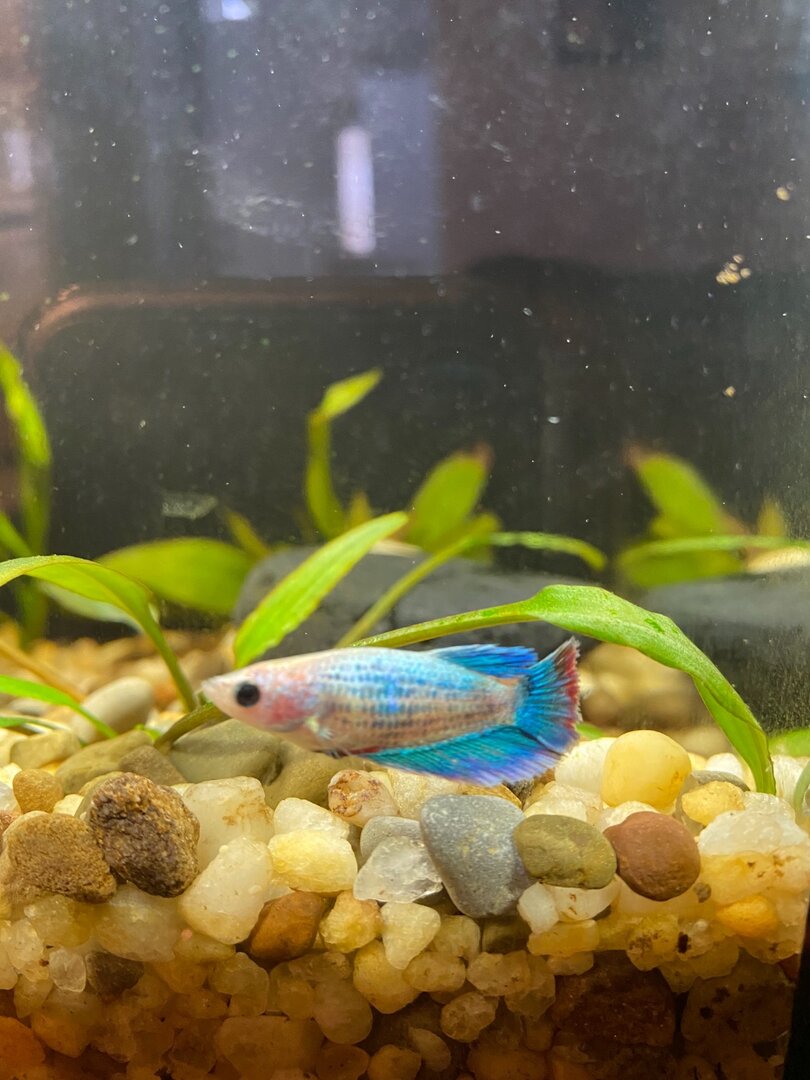
Adorned with vibrant colors, elaborate fins, and dynamic personalities, betta fish, also known as Siamese fighting fish, have captivated aquarium enthusiasts for centuries. While these graceful creatures are relatively low-maintenance compared to other fish species, their care does require attention to their dietary needs. One common behavior that can raise concerns among betta owners is when their fish spit out food. This seemingly puzzling action can have various underlying reasons, ranging from food preferences to health issues. This comprehensive guide delves into the world of betta fish nutrition, exploring the potential causes behind food spitting and providing practical solutions to ensure your finned friend receives the nourishment it needs.
Decoding the Mystery: Understanding Why Betta Fish Spit Out Food
When a betta fish spits out food, it’s important to avoid jumping to conclusions. This behavior can have various explanations, some of which are harmless while others may warrant further investigation. Let’s unravel the potential causes behind this common occurrence:
1. Food Size and Texture:
Betta fish have relatively small mouths, and they can be picky eaters. If the food you are providing is too large or hard for them to swallow, they may spit it out to break it down into smaller pieces before consuming it.
2. Food Preferences:
Like humans, betta fish have individual preferences when it comes to food. Some fish may prefer live or frozen foods, while others may favor flakes or pellets. Experimenting with different food options can help you determine your betta’s preferences.
3. Stress-Related Behavior:
Stress can manifest in various ways in betta fish, including spitting out food. If your fish is experiencing stress due to factors such as tank mates, water quality, or inadequate tank size, it may lose its appetite or exhibit unusual eating habits.
4. Digestive Issues:
In some cases, spitting out food can be a symptom of underlying digestive problems. Constipation, swim bladder disease, and parasites can all affect a betta’s ability to digest food properly.
5. Mouth or Throat Problems:
Injuries or infections in the mouth or throat can make it difficult for a betta fish to eat and swallow food. If you notice any signs of mouth or throat lesions, consult with an experienced aquarist or veterinarian.
Addressing the Issue: Practical Solutions for Betta Fish Spitting Out Food
Once you have identified the potential cause of your betta fish’s food spitting behavior, you can take appropriate steps to address the issue:
1. Adjust Food Size and Texture:
If the food is too large or hard, try crushing it into smaller pieces or soaking it in water to soften it. You can also experiment with different food types, such as live or frozen foods, to see if your fish prefers them.
2. Cater to Food Preferences:
Observe your betta’s eating habits and offer a variety of food options to cater to their preferences. If they seem to prefer live or frozen foods, incorporate those into their diet.
3. Reduce Stress Levels:
Ensure your betta fish is housed in a suitable environment that minimizes stress. Provide a spacious tank, maintain good water quality, and avoid aggressive tank mates.
4. Seek Veterinary Attention:
If you suspect digestive issues or mouth/throat problems, consult with an experienced aquarist or veterinarian. They can diagnose the underlying cause and recommend appropriate treatment.
Promoting a Healthy and Happy Betta Fish
By understanding the potential causes of betta fish spitting out food and implementing the appropriate solutions, you can ensure your finned friend receives the nourishment it needs to thrive. Remember, a varied and balanced diet, coupled with a stress-free environment, is essential for maintaining a healthy and happy betta fish. As you continue to care for your betta, observe its behavior closely and make adjustments as needed. With proper care and attention, your betta fish can live a long and vibrant life, bringing you years of enjoyment and companionship.
Additional Considerations for Betta Fish Feeding
Beyond the initial causes and solutions, here are some additional factors to consider when addressing your betta fish’s food-spitting behavior:
-
Feeding Frequency: Betta fish have small stomachs and don’t require large meals. Overfeeding can lead to digestive problems and water quality issues. A general rule of thumb is to feed your betta fish a small amount of food two times a day. Observe your fish’s eating habits and adjust the feeding amount as needed.
-
Fasting: Betta fish can benefit from occasional fasting days. This allows their digestive system to rest and helps prevent constipation. Once a week, you can skip a feeding or offer a smaller amount of food than usual.
-
Monitoring Water Quality: Uneaten food and fish waste can deteriorate water quality. Regular water changes and filtration are essential to maintain a clean and healthy environment for your betta fish. Poor water quality can contribute to stress and digestive issues, potentially leading to food-spitting behavior.

Signs of a Healthy Betta Fish
While observing your betta fish spitting out food can be concerning, it’s important to consider other factors to assess their overall health. Here are some signs that indicate your betta fish is thriving:
-
Active Swimming: Healthy betta fish should be actively exploring their tank, swimming smoothly and gracefully. Lethargy or listlessness can be a sign of illness.
-
Vibrant Colors: Betta fish are known for their dazzling colors. A healthy betta will display bright, vibrant colors throughout its body and fins. Dull or faded colors can indicate stress or illness.
-
Healthy Fins: The fins of a healthy betta fish should be upright and free from tears or damage. Clamped fins, where the fins are held close to the body, can be a sign of stress or illness.

-
Good Appetite: Healthy betta fish will readily accept food at feeding times. Loss of appetite can be a sign of various health issues.
-
Normal Waste Production: Healthy betta fish will produce a small amount of stringy, white waste after feeding. Excessive waste production, abnormal color or consistency of waste, or lack of waste production can all indicate health problems.
By monitoring your betta fish’s behavior and appearance, alongside their food-spitting habits, you can gain a deeper understanding of their overall well-being. If you notice any concerning signs, consult with an experienced aquarist or veterinarian for proper diagnosis and treatment.


